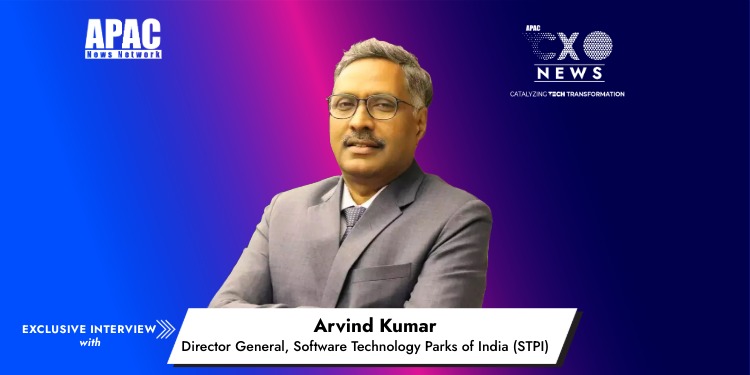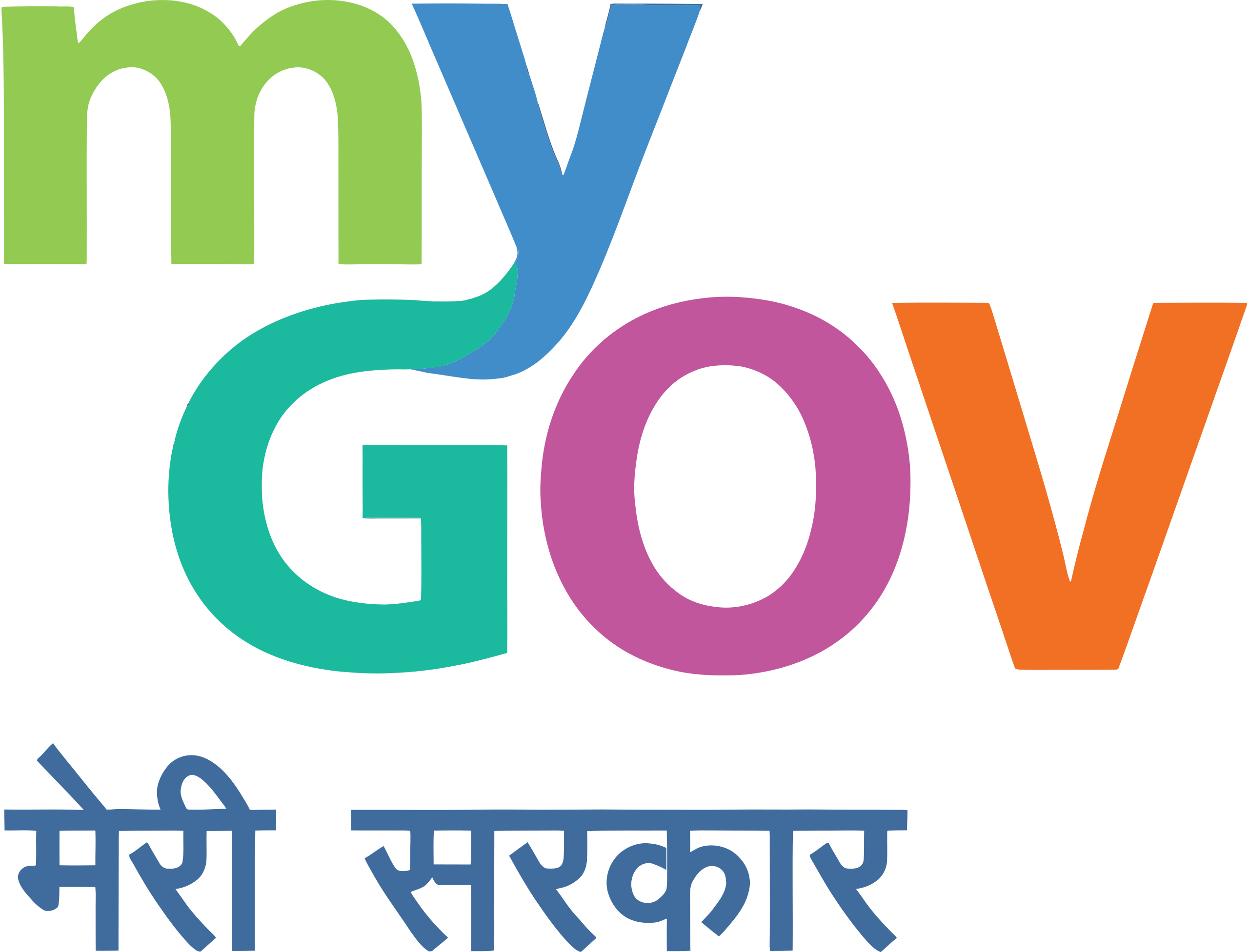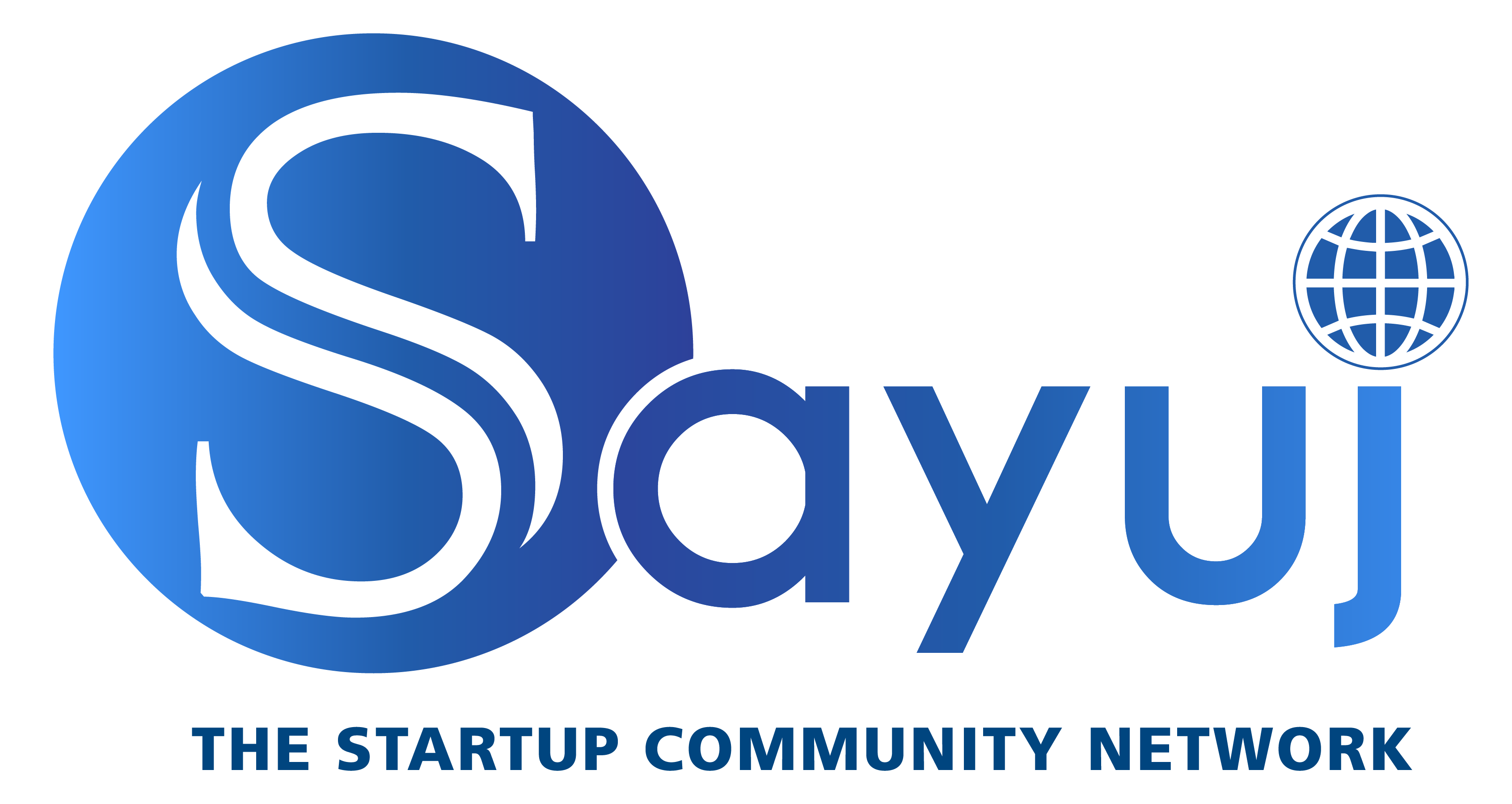“STPI Helps Indian IT Leap Ahead” opines Arvind Kumar, Director General, Software Technology Parks of India (STPI)
- 02-09-2024

In an exclusive conversation with CXO News and APAC News Network, Arvind Kumar, Director General, Software Technology Parks of India (STPI) talks about the different CoEs on emerging technologies that are being promoted and how the LEAP AHEAD initiative could be a game changer for start-ups.
What are your roles and responsibilities as the Director General of STPI?
As the Director General of the Software Technology Parks of India (STPI), my role is basically in encouraging all-inclusive growth and ensuring the dispersal of the IT/ITeS industry to tier-2 and tier-3 cities across India. By overseeing and leading the organization, I work to promote and enhance software exports from India while nurturing a robust tech startup ecosystem.
My key responsibilities involve strategic planning, policy formulation, and implementation, all aimed at fostering innovation and driving growth in the IT sector. I administer and monitor 65 centres across the country, divided into 11 directorates, to ensure the smooth execution of STPI services to the satisfaction of the IT/ITeS industry.
This role requires close coordination with various stakeholders, including government agencies to create a conducive environment for IT businesses and startups. I manage the expansion of infrastructure, implement new initiatives like the Next Generation Incubation Scheme (NGIS), and ensure that the Centres of Entrepreneurship (CoEs) operate efficiently to support emerging technologies.
Through these efforts, I am carrying forward the vision of the government to empowerthe youth of our nation, enabling them to contribute meaningfully to the economic growth of India. I am responsible not only identifying the core requirements of the IT sector, but also performing the role of an interface between the government and the industry, so as to ensure that the Indian tech ecosystem continues to excel and seamlessly realize its full potential.
What are the initiatives that STPI has taken to promote the Indian startup ecosystem in recent years? In what ways can it transform the IT landscape in India?
In the recent past, to move up the value chain and transform India into a software product nation, STPI has adopted a collaborative model that brings together industry veterans, academia, government, and other key stakeholders. This approach has led to the launch of 24 new Centres of Entrepreneurship (CoEs) focused on emerging technologies such as AI, Blockchain, AR and VR, Industry 4.0, gaming, and more. These CoEs are designed to provide specialized resources, infrastructure, and support for innovation research and development in these advanced technology domains.
Furthermore, to provide opportunities to the youth in tier-2 and tier-3 cities, STPI has significantly expanded the Next Generation Incubation Scheme (NGIS). The NGIS offers comprehensive support to a larger number of startups across various regions, including funding, mentorship, and global market access.
These initiatives are set to transform the IT landscape in India by fostering innovation and enabling startups to develop cutting-edge solutions. This will not only boost the competitiveness of Indian IT firms globally but also create high-skilled jobs and attract international investments. By nurturing a robust ecosystem for technological innovation, these initiatives are playing a crucial role in positioning India as a leading hub for IT and digital advancements.
There are so many emerging technologies that are constantly evolving and reshaping the IT industry. Which are the trends you would predict to become crucial for India’s IT sector?
India’s IT sector is poised to be significantly impacted by several emerging technologies that are evolving rapidly. Artificial Intelligence (AI) and Machine Learning (ML) are expected to drive innovation across industries, enabling automation, enhanced data analytics, and personalized services. In July 2024, the government of India launched the IndiaAI Mission under the aegis of the Ministry of Electronics and Information Technology.
Under this initiative the government has allocated INR 10,372 Crores for setting up the computing capacity of up to 10,000 graphic processing units, as well as developing AI application for critical sectors. Blockchain technology is set to revolutionize areas like finance, supply chain, and government services by providing secure and transparent transaction systems.
The Internet of Things (IoT) will further integrate smart devices into everyday life, driving advancements in smart cities, healthcare, and agriculture. Additionally, 5G technology will offer faster and more reliable connectivity, facilitating the growth of advanced applications in remote areas.
Cloud computing will continue to expand, providing scalable and cost-effective solutions for businesses of all sizes. Furthermore, quantum computing, though in its nascent stage, holds the potential to solve complex problems beyond the capability of classical computers, promising breakthroughs in various fields. Collectively, these technologies will drive India’s IT sector towards greater innovation, efficiency, and global competitiveness.
The Centres of Entrepreneurship have been developed to benefit the youth of the country. How are these CoEs creating impact on the startup ecosystem in the country?
STPI has established 24 Centers of Entrepreneurship (CoEs) in emerging technology domainsacross a collaborative framework comprising of the industry, industry associations, government agencies and the academia. All STPI CoEs are empowering Indian startups by providing essential resources, funding, mentorship, technical support, and market access needed to innovate and excel.
By focusing on cutting-edge technologies such as AI, ML, Blockchain, AR-VR and Industry 4.0, the CoEs are creating a fertile ground for young innovators, particularly in tier 2 and tier 3 to develop solutions that address both local and global challenges. The impact of these CoEs on the startup ecosystem in India is profound. Through their dedicated efforts and long-term initiatives, these CoEs have led to the development of numerous innovative products and solutions, increased patent filings, and successful market entries, positioning Indian startups as competitive players on the global stage.
Furthermore, the CoEs are playing a crucial role in creating high-skilled jobs, attracting international investments, and fostering a culture of continuous learning and innovation. By doing so, they are not only contributing to the economic growth of the country but also ensuring that India remains at the forefront of the global digital revolution.
Till date, STPI CoEs have supported 655 startups, which have created 707 new products, and done 399 IPR filings. Looking ahead, STPI plans to expand the CoE model to more cities and enhance collaboration with academic institutions, industry associations, and global investors. Future initiatives also include the introduction of specialized programs focused on emerging technologies such as Deep-Tech and Advanced AI capabilities, which are vital for fostering an environment conducive to research and development. These efforts aim to further amplify the impact of CoEs, driving sustained innovation and economic growth in local ecosystems.
STPI has recently executed the first edition of LEAP AHEAD initiative. How would you assess the outcomes of this initiative?
The STPI LEAP AHEAD initiative was conceptualized based on three pillars, namely, intensive mentorship, global connect and funding. The first edition of STPI’s LEAP AHEAD initiative has yielded significant outcomes, wherein 87 startups were shortlisted from 546 applicants from across 27 Indian states. These 87 startups were mentored over three months by more than 60 mentors. STPI took 22 of these startups to Silicon Valley and supported them in securing investments along with market connect in US. The outcomes of these efforts include the development of innovative products, increased patent filings, and successful market entries, positioning Indian startups as competitive players on the global stage.
Through LEAP AHEAD, STPI has not only empowered Indian startups to scale and compete internationally but also strengthened the overall innovation ecosystem in India, paving the way for continued technological advancement and economic growth. By partnering with leading global technology hubs, innovation centers, and industry giants, the STPI LEAP AHEAD initiative has facilitated knowledge exchange, market access, and investment opportunities for Indian enterprises.
The STPI LEAP AHEAD initiative has significantly boosted the innovation potential and competitiveness of Indian startups, fostering a conducive environment for joint ventures, strategic alliances, and co-development projects. Moving forward, STPI aims to foster new collaborations, explore new avenues for the growth of the Indian tech sector, which would ensure that India cements its position as a global leader in technology and innovation.
What is your vision for STPI in the next 5 years, and how do you plan to align it with the global IT landscape that is constantly evolving?
STPI’s vision is centered on propelling the growth of the Indian IT and electronics sectors to contribute significantly to making India a $1 trillion digital economy. Over the next five years, STPI aims to transform into a global leader in fostering innovation, technology development, and entrepreneurship.
By leveraging emerging technologies such as AI, IoT, blockchain, and quantum computing, STPI plans to position India at the forefront of the global IT landscape. As STPI looks towards the next 5 years, we will continue to expand the scope and reach of all our initiatives. This involves expanding the network of CoEs to more cities, ensuring they become hubs of excellence and innovation across diverse technological domains. Enhancing industry collaborations and partnerships with government agencies, will be crucial in providing Indian startups with access to global markets, cutting-edge research, and investment opportunities.
Additionally, we plan to launch of the second edition of the LEAP AHEAD initiative, which will be focused on further bolstering the Indian tech startup ecosystem. Building on the successes of the first edition, this edition will offer even greater support, helping startups secure global mentorship, funding, and market access.
Our vision has always been aligned with the dynamic global IT landscape. To achieve this, first we focused on strengthening the tech startup ecosystem. Hence, STPI launched Sayuj, a networking and resource discovery platform, and the STPI Workspace portal (STPI-Workspace) to provide affordable incubation spaces. These platforms will be instrumental in enhancing connectivity and collaboration within the startup community.
Subsequently, STPI has stood steadfast in our commitment to foster innovation and entrepreneurship, while also nurturing India’s startup ecosystem. With this aim, STPI continues to promote the development of cutting-edge technologies and support the establishment of high-tech startups. We firmly believe that growth and development must be inclusive, cutting across traditional barriers. Dispersing our initiatives like the Next Generation Incubation Scheme (NGIS) and Centers of Entrepreneurship (CoEs), to tier-2 and tier-3 cities, we have endeavored to provide equal opportunity to India’s youth and empowered them so that they may contribute to the mainstream development of the country.
By continuously upgrading our infrastructure capabilities and statutory offerings, STPI will continue to foster a culture of continuous learning, in alignment with global standards and the best industry practices. STPI will always work to ensure that India not only keeps pace with the next generation of tech innovation, but also positions the country as a global leader in digital transformation and tech product development.
Alice Purty & Rajneesh De, APAC News Network









